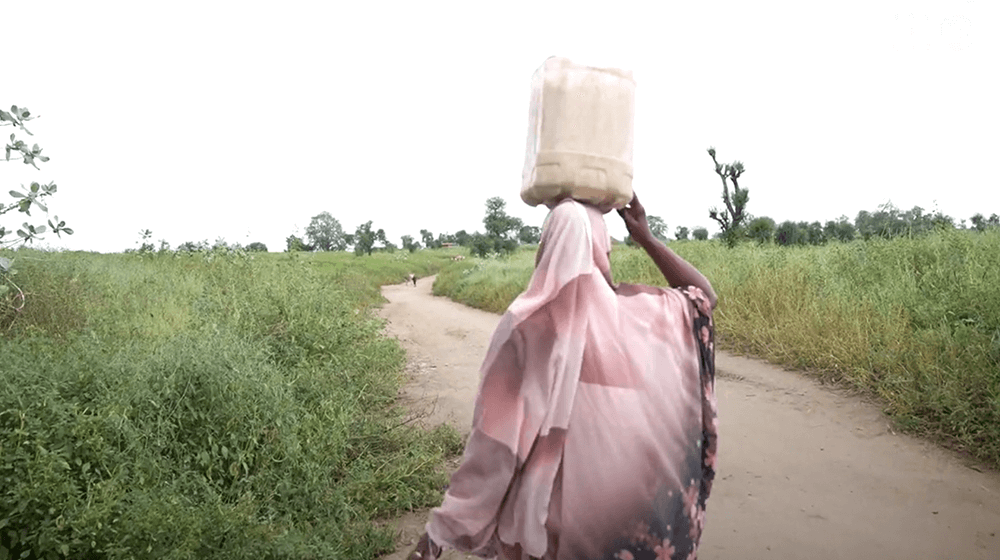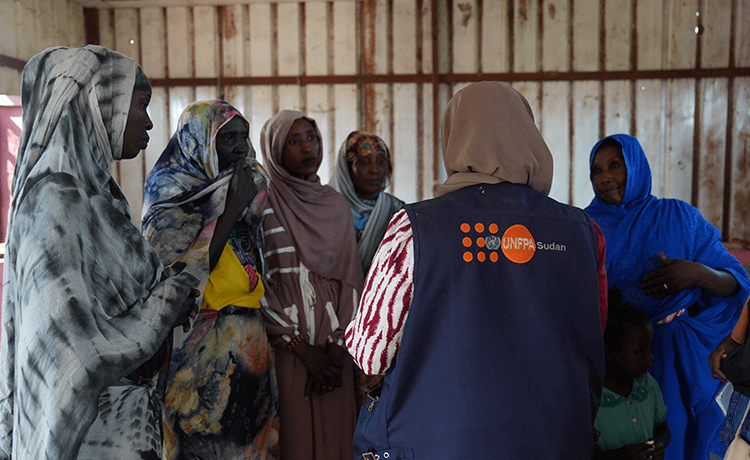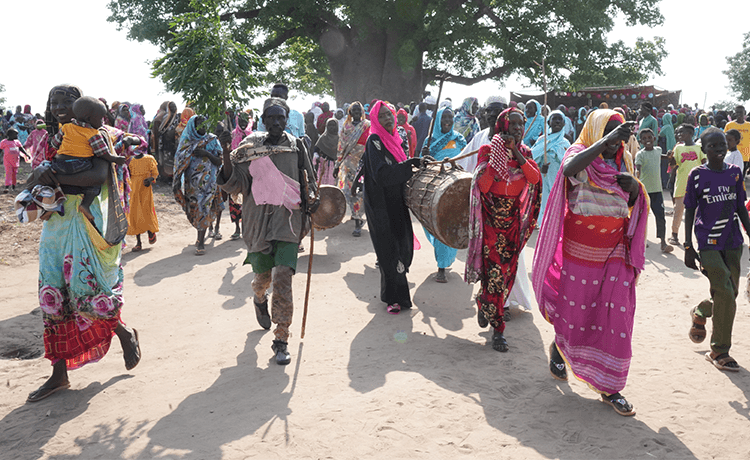
Haleema Ibrahim, 36, walked a few minutes back to her home in the village of Shanisha, in Sudan’s Blue Nile State, carrying a basket of freshly-ground grains from UNFPA’s newly-built flour mill.
“We used to walk long distances to grind our grain,” Ms. Ibrahim told UNFPA, the UN sexual and reproductive health agency. “Women and girls faced harassment along the way – we had to run fast to avoid it, often spilling most of the flour.”
In Sudan, it usually falls to women and children to walk for miles to reach flour mills, water pumps and other essential services. For 36-year-old Salma, who arrived in Shanisha to escape the conflict raging in her home town of Khartoum, the remote location presented its own series of safety concerns.
“I accompanied my daughter to grind grains. It’s an exhausting journey,” she said. “There was no grinder in our village so we had to travel to a distant town, where people harass us on the streets.”
The consequences of violence
Women and girls in Sudan are bearing the brunt of the war’s impact. Journeys to hoped-for havens are arduous, mothers carrying children on their backs, confronting violence, coercion, poverty and hunger.
In many places, the displaced find themselves sharing the same struggles as their hosts. Food and clean water are scarce. Access to health services almost non-existent. Tensions are rising. Sexual violence, harassment, and exploitation have become rampant. Women and girls face abuse both where fighting is ongoing and in communities of displaced people.
Treading a dangerous path
As the economic and security situation spirals, access to health and protection support is crumbling with it. The UN estimates that 4.2 million people across Sudan are at risk of violence as the conflict rages on.
“I used to go to the mills and had countless problems,” said Om Kolthom, a 40-year-old woman from Khartoum. “Once I came across six men who demanded money for passage.”
Instead of concern for their welfare upon their return from the trip to the mill, women said they often faced scrutiny and criticism from family members. “They ask questions like, ‘What took you so long?’ and ‘Why did you lose half of the flour?’” Ms. Ibrahim told UNFPA.

Sexual violence is common in Sudan’s conflict
In Sudan, sexual violence is pervasive to the extent of being normalized. Many women expressed the need for closer, safer and more accessible basic services.
We listened to to the community. We built the flour mill in Sudan that is so far serving an estimated 30,000 people in Shanisha. UNFPA Representative in Sudan Mohamed Lemine said, “This project is an example of how women and girls drive the planning process of our programs.”
For Om Kolthom, the intervention has been a relief. “With this new mill, we can send even the youngest person at home to grind the grains. It takes less than 5 minutes now.”

People-centred programming
With the risk of sexual violence undermining the lives of women and girls, holistic, survivor-driven initiatives can be key.
In partnership with the European Union, UNFPA has established five new community protection networks in Sudan. From Al Jazirah, West Darfur, to the Red Sea and Northern States, we are supporting 167 active networks across the country.
Teams have established multiple safe spaces and temporary clinics specifically for women and girls. These offer specialized support, including post-rape kits, sexual and reproductive health assistance, psychosocial services and referrals to advanced care.
Since mid-April 2023, more than 6 million people have fled their homes in Sudan. More than three quarters of Sudan’s displaced population are women and girls of reproductive age.
As the crisis in Sudan only becomes more entrenched, there is an urgent need for ramped-upfunding. Women and girls who are acutely vulnerable to violence and abuse must be protected.